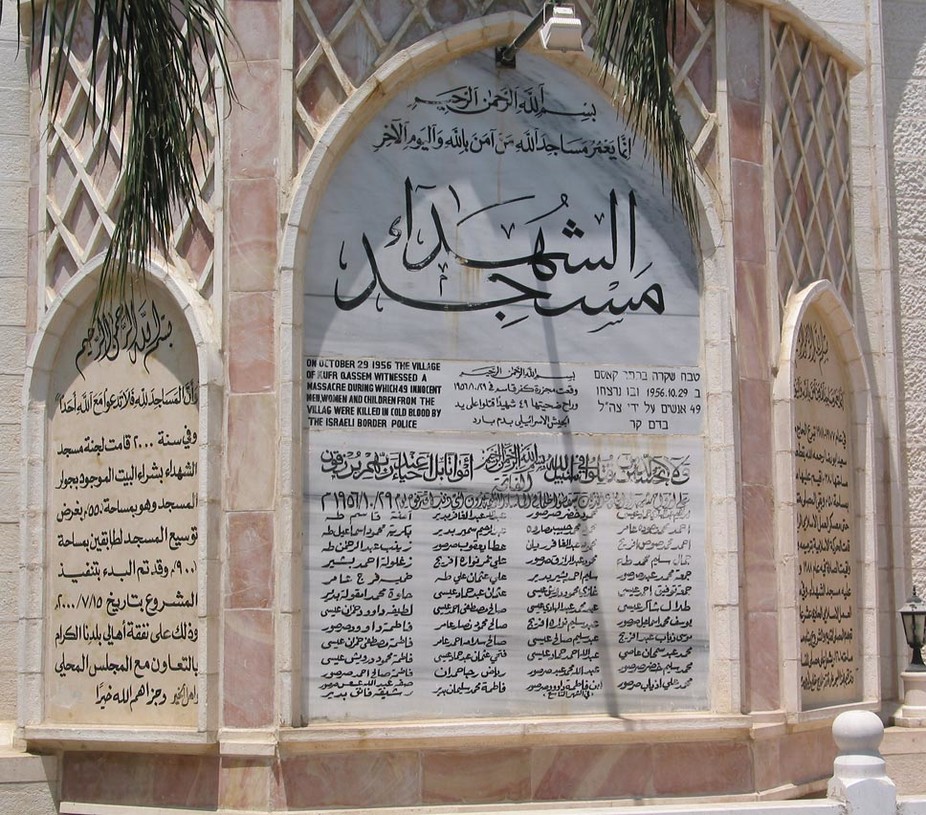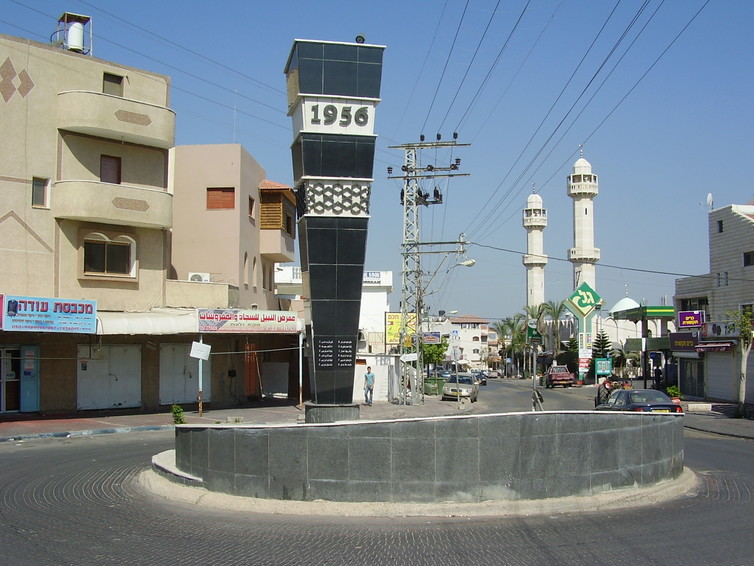PBS: Escaping Eritrea … [Read More...] about ካብ ውሽጢ ቤት ማእሰርታት ኤርትራ
Remembering the Palestinians murdered at Kafr Qasim six decades ago

October 2016 marks the 60th anniversary of one of the key events in Jewish-Arab history within Israel: the Kafr Qasim massacre of 1956, in which 49 women, men and children were shot dead by an army unit instructed to kill all breakers of a badly implemented curfew. This event is not part of the national Israeli calendar. It is mentioned only in passing as a “bad apple” in the national story.
As far as Palestinian Israelis are concerned, the massacre, the impunity enjoyed by its perpetrators and the Israeli state’s failure to go beyond cynical gestures and officially recognise it as a crime have left a gaping wound in Jewish-Palestinian relations.
Histories of the Israeli-Palestinian conflict often neglect the Palestinian population that remained in Israel after it was formally created – and in particular, surprisingly little is said or written about the extended period highly restrictive military rule imposed on them between 1948 and 1966. DUring this period, Palestinians living within Israel were deemed a “security threat” and were required to obtain official permits for travel outside designated areas. It was in this charged atmosphere that the massacre took place.
God have mercy
On 29 October 1956, the Suez crisis was about to reach its peak. In collusion with the French and the British, Israeli forces were preparing to storm south through the Sinai. The army also feared a possible conflict with Jordan in the east as well, with tensions running high along the Green Line between the Israel and Jordanian West Bank.
Kafr Qasim was caught in the middle. The local Israeli commander, Issachar Shadmi, decided to that the regular nightly curfew on the Palestinian villages that usually started at 9pm would commence at 5pm. But this decision was taken at 1pm that same day – by which time many of the Palestinian villagers were out in their fields, meaning they could not be informed.
Asked by his soldiers what would become of people caught outside during the curfew, Shadmi infamously replied “Allah Yarhamhu” (“god have mercy on him”), a saying usually relayed to the dead. His commanders understood this as an instruction to execute anyone caught outside during the curfew.

Two of the three units given the orders ignored them, but the third shot dead 49 people in Kafr Qasim. Witness testimonies detailed the cruel executions of people who were not aware they were breaking any rule. Among those shot at close range were 23 children.
The massacre only became public thanks to Knesset members on the far left, who used their immunity to publicise the event in the Israeli Knesset in spite of an official news blackout. Only six weeks after the massacre did the Israeli prime minister, David Ben-Gurion, acknowledge it – and in January 1957, a protracted nine-month trial began at the military court.
Shadmi’s penny
The offending unit was not part of the Israel Defence Forces but of the newly formed “border patrol” – and the authorities put the blame for the massacre squarely on the soldiers who committed it. Of the 11 defendants accused of taking part in the massacre, eight were given long sentences. They went free within a year.
Shadmi, meanwhile, was tried separately and was ultimately fined one hundredth of an Israeli Lira, then roughly the equivalent of an American penny. Palestinian Israelis remember the sentence as Qirsh-Shadmi, or “Shadmi’s Penny” – a measure of how much the Israeli state values Palestinian lives, even among its formal citizens. Nonetheless, the trials did establish a legal precedent that Israeli soldiers are obliged to defy “blatantly illegal orders” such as the one Shadmi gave.
Measures of reconciliation have taken place. The late Israeli president Shimon Peres apologised for the massacre in 2007, while his successor, Reuven Rivlin, even came to the village to participate in the local commemoration event. His brave gesture sparked outrage among the Israeli right, but it wasn’t without its own problems. Rivlin linked his own visit to the cynical reconciliation ceremony in 1957, which the local leaders of Kafr Qasim were more or less coerced into attending.
The massacre still isn’t accorded much of a place in Israel’s national historiography. Efforts to change that are still underway. In 2015, Palestinian Knesset member Aida Touma Souliman proposed legislation that would officially recognise the Kafr-Qassim massacre and introduce it to the national canon with an official commemorative date and a school hour devoted to the subject. She explained:
Our will for recognition is not to know the facts … we ask for recognition to know that there is a political decision towards a new political direction that builds a new relationship between the state and its Arab population.
There are a lot of different ways to contextualise and analyse the legacy of the Kafr-Qassem massacre in contemporary Israel, especially in light of the recent spate of extrajudicial killings and certainly in light of the 60-year commemoration of the Suez war. But on this non-state-sanctioned remembrance-day, it might be wise remember the words of Polish poet Zbegniew Herbert: “ignorance about those who are lost undermines the reality of the world.”
is PhD candidate in the School of International Relations, University of St Andrews.
